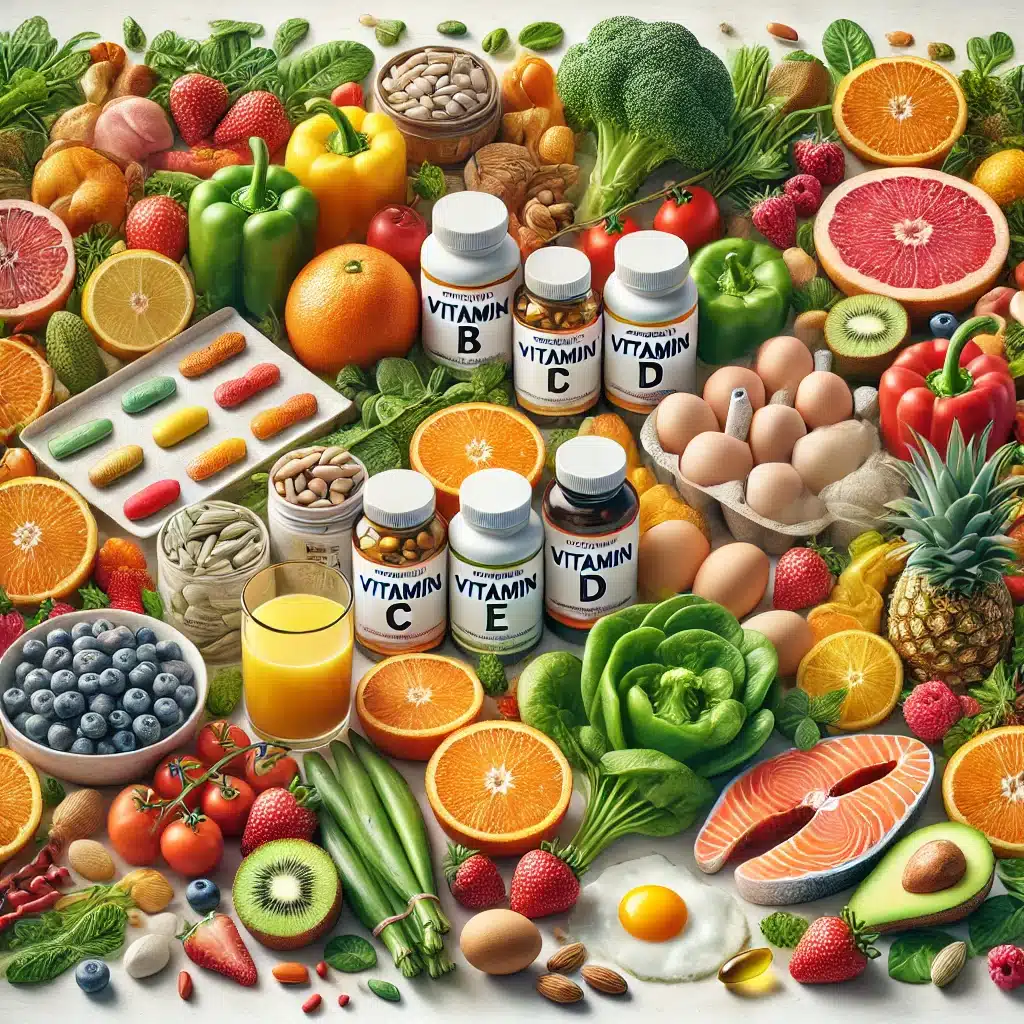
In recent years, the connection between what we eat and how we feel has gained significant attention from both the scientific community and the general public. While mental health is influenced by a complex interplay of factors—genetics, environment, and lifestyle—emerging evidence suggests that nutrition plays a crucial role in maintaining and improving mental well-being. The foods we consume not only provide the building blocks for our physical health but also impact our brain function, neurotransmitter production, and overall emotional state. As we continue to understand this intricate relationship, it’s becoming increasingly clear that what we put on our plates can have profound effects on how we think, feel, and cope with life’s challenges. This article explores the fascinating link between diet and mental health, shedding light on specific foods that can positively influence your mood and overall mental state.
The Gut-Brain Connection: Understanding the Basics
The relationship between the gut and the brain is an area of growing interest in mental health research. The gut, often referred to as the “second brain,” is home to trillions of microbes that play a key role in the production of neurotransmitters like serotonin and dopamine, which are crucial for regulating mood. These neurotransmitters, which are predominantly produced in the gut, influence a wide range of psychological functions, including mood, anxiety levels, and stress response. This intricate gut-brain axis suggests that a healthy gut can lead to a healthier mind, highlighting the importance of nurturing our gut flora through proper nutrition. The food we consume not only fuels our bodies but also significantly impacts the delicate balance of these microbes, thereby influencing our emotional well-being and cognitive function. As research into this connection deepens, it’s becoming clear that diet can be a powerful tool in managing mental health, offering a natural way to support emotional resilience and overall mental wellness.
Omega-3 Fatty Acids: Nature’s Mood Stabilizers

Omega-3 fatty acids, commonly found in fatty fish such as salmon, mackerel, and sardines, have been extensively studied for their mood-boosting properties. These essential fats are crucial for brain health, playing a vital role in maintaining the structure of brain cells and facilitating communication between neurons. Research has shown that deficiencies in omega-3s can disrupt these processes, leading to an increased risk of mood disorders, including depression and anxiety. Additionally, omega-3 fatty acids have powerful anti-inflammatory effects, which are believed to help reduce the chronic inflammation that is often linked to mental health conditions. By regularly incorporating omega-3-rich foods into your diet, you not only support overall brain function but also foster emotional stability, potentially mitigating the effects of stress and promoting a more balanced mood. Moreover, the versatility of omega-3 sources—ranging from fish to flaxseeds and walnuts—makes it easy to include these beneficial fats in your daily meals, ensuring that your brain receives the nourishment it needs to thrive.
Complex Carbohydrates: Sustained Energy for a Balanced Mood
Carbohydrates often get a bad rap, but it’s essential to distinguish between different types of carbs and their impact on mental health. Unlike simple carbohydrates found in sugary snacks and processed foods, complex carbohydrates, found in whole grains, legumes, and vegetables, play a crucial role in supporting brain function and maintaining stable energy levels throughout the day. These complex carbs break down slowly in the body, providing a gradual and steady release of glucose—the brain’s primary source of fuel—into the bloodstream. This steady supply of glucose helps prevent the blood sugar spikes and crashes that are commonly associated with consuming refined carbohydrates, which can lead to mood swings, irritability, and fatigue. Moreover, complex carbohydrates also encourage the production of serotonin, a neurotransmitter that contributes to feelings of well-being and happiness. By incorporating more complex carbs into your diet, you can support not only your physical health but also foster a more balanced and positive mental state, reducing the likelihood of experiencing the emotional highs and lows that can derail your day.
The Power of Probiotics: Enhancing Mental Resilience
Probiotics, the beneficial bacteria found in fermented foods like yogurt, kefir, sauerkraut, and kimchi, are increasingly recognized for their vital role in supporting gut health and overall well-being. A healthy and balanced gut microbiome is not only essential for digestion but also plays a crucial part in the production and regulation of neurotransmitters like serotonin, dopamine, and gamma-aminobutyric acid (GABA), which significantly influence mood and emotional stability. When the gut microbiome is in balance, it can effectively communicate with the brain via the gut-brain axis, promoting a positive mood and reducing stress-related responses. Emerging research suggests that regular consumption of probiotic-rich foods can help alleviate symptoms of depression and anxiety by fostering a healthier gut environment. By incorporating these foods into your diet, you can support your mental health by enhancing your gut’s ability to regulate mood, reduce inflammation, and maintain emotional resilience in the face of life’s challenges.
Antioxidants: Fighting Oxidative Stress for Mental Clarity
Oxidative stress is a condition that arises when the body’s production of free radicals—unstable molecules that can cause cell damage—outpaces its ability to neutralize them with antioxidants. This imbalance can lead to significant cellular damage and has been implicated in the development of various mental health conditions, including cognitive decline, anxiety, and depression. The brain, being particularly vulnerable to oxidative damage due to its high oxygen consumption and lipid-rich environment, requires robust antioxidant defenses to maintain its health and function. Incorporating antioxidant-rich foods into your diet is a powerful way to combat oxidative stress. Foods such as berries, dark chocolate, nuts, and leafy greens are packed with antioxidants like flavonoids, vitamin E, and polyphenols, which help to neutralize free radicals, protect brain cells from damage, and support overall cognitive function. By regularly consuming these foods, you can bolster your brain’s defense mechanisms, reduce the risk of mood disorders, and promote long-term mental well-being.
Magnesium: The Relaxation Mineral

Magnesium is an essential mineral that is critical for over 300 biochemical reactions in the body, many of which directly influence the nervous system and emotional well-being. Often called the “relaxation mineral,” magnesium is known for its ability to help calm the nervous system, making it a powerful ally in the fight against stress and anxiety. Magnesium plays a key role in regulating neurotransmitters, the chemical messengers in the brain, which directly impact mood and stress levels. Unfortunately, magnesium deficiencies are surprisingly common due to factors such as modern diets, stress, and certain medications, which can deplete magnesium levels in the body. Deficiency in this crucial mineral can lead to a variety of symptoms, including anxiety, irritability, muscle tension, and insomnia. By incorporating magnesium-rich foods like leafy greens, nuts, seeds, and whole grains into your daily diet, you can support your body’s natural relaxation processes, enhance your resilience to stress, and promote a sense of calm and well-being. Additionally, maintaining adequate magnesium levels may improve sleep quality, which is essential for overall mental health.
The Role of B Vitamins: Energy and Emotional Well-being
B vitamins, especially B6, B12, and folate, are crucial for maintaining optimal brain health and ensuring the proper functioning of neurotransmitters such as serotonin and dopamine, which play a significant role in regulating mood and emotional stability. A deficiency in these essential vitamins can disrupt neurotransmitter production, leading to a heightened risk of depression, anxiety, and other mood-related disorders. The importance of these vitamins extends beyond mood regulation; they are also vital for energy metabolism, red blood cell formation, and cognitive function. To maintain adequate levels of B vitamins, it is important to incorporate foods rich in these nutrients into your daily diet. Eggs, lean meats, fish, whole grains, and leafy greens are excellent sources of B vitamins that not only support mental health but also boost energy levels and reduce feelings of fatigue. By ensuring regular consumption of these nutrient-dense foods, you can help protect your brain from deficiencies that may lead to emotional imbalances, while also promoting overall well-being and vitality.
The Importance of Hydration: Water’s Role in Mental Health
Hydration is a fundamental yet frequently overlooked aspect of nutrition that plays a critical role in mental health. Water is essential for maintaining optimal brain function, as even mild dehydration can impair cognitive abilities and negatively impact mood. When the body lacks sufficient hydration, it can lead to symptoms such as confusion, irritability, and fatigue, which may intensify existing anxiety and depression. Furthermore, dehydration affects the balance of electrolytes and neurotransmitters in the brain, further disrupting emotional regulation. Making a conscious effort to drink enough water throughout the day is a simple, practical step that can have a profound impact on your mental well-being. By prioritizing hydration, you not only support your body’s physical needs but also create a solid foundation for emotional and cognitive stability.
The Impact of Sugar: How Sweet Cravings Can Sour Your Mood

While sugar may offer a fleeting surge of energy, this is often followed by a sharp crash that can leave you feeling more drained and irritable than before. The quick spike and subsequent drop in blood sugar levels can contribute to fluctuations in mood, exacerbating symptoms of depression, anxiety, and irritability. Over time, a diet high in refined sugars can disrupt the balance of neurotransmitters in the brain, further impacting emotional well-being. By reducing your intake of processed sugars and opting for natural alternatives like honey or maple syrup, you can help maintain more consistent energy levels. Even better, satisfying your sweet cravings with whole fruits not only provides natural sugars but also delivers essential vitamins, minerals, and fiber that support overall mental and physical health. Making these mindful dietary choices can lead to more stable moods and a more balanced emotional state throughout the day.
Protein: The Building Block of Neurotransmitters
Proteins are vital not only for building and repairing body tissues but also for maintaining mental health by supporting the production of neurotransmitters—those crucial chemical messengers that enable communication within the brain. Amino acids, which are the building blocks of proteins, are essential for synthesizing neurotransmitters like serotonin and dopamine. These neurotransmitters are directly linked to mood regulation, influencing feelings of happiness, motivation, and overall emotional stability. When your diet includes high-quality protein sources such as lean meats, fish, eggs, and legumes, you’re providing your brain with the necessary ingredients to produce these important neurotransmitters. This, in turn, helps maintain a balanced mood, enhances mental clarity, and promotes overall emotional well-being. By ensuring a consistent intake of protein, you support not only your physical health but also your mental resilience, making it easier to navigate the stresses and challenges of daily life.
Practical Tips for Incorporating Mood-Boosting Foods into Your Diet
Start Your Day Right: Begin with a balanced breakfast that includes protein, complex carbohydrates, and healthy fats. For example, a bowl of oatmeal topped with berries and a spoonful of almond butter.
Snack Smart: Replace sugary snacks with options like nuts, seeds, or yogurt to keep your energy levels stable throughout the day.
Stay Hydrated: Keep a water bottle with you and set reminders to drink water regularly.
Experiment with Fermented Foods: Add yogurt, kefir, or sauerkraut to your meals to boost your intake of probiotics.
Prioritize Whole Foods: Focus on incorporating whole, minimally processed foods into your meals to maximize nutrient intake.
Nourishing Your Mind and Body
The food we eat has a profound impact on our mental health, influencing everything from our mood and energy levels to our ability to cope with stress. By incorporating nutrient-dense, mood-boosting foods into your diet, you can take an active role in supporting your mental well-being. At Beyond Healing Counseling & Wellness, we believe in a holistic approach to health, and nutrition is a key component of that approach. Our team is here to support you in making dietary choices that enhance both your physical and mental health.
If you’re interested in learning more about how nutrition can impact your mental health or need guidance on making dietary changes, Beyond Healing Counseling & Wellness offers personalized nutrition counseling services. Contact us today to schedule a consultation and take the first step towards a healthier, happier you.
Table of Contents
- Introduction
- The Connection Between Diet and Mental Health
- The Growing Interest in Nutritional Psychiatry
- The Gut-Brain Axis: The Link Between Nutrition and Mental Health
- The Gut as the “Second Brain”
- The Role of Neurotransmitters
- Omega-3 Fatty Acids: Brain-Boosting Fats
- The Importance of Omega-3s for Brain Health
- Foods Rich in Omega-3 Fatty Acids
- Complex Carbohydrates: Steady Energy for the Brain
- The Benefits of Complex Carbs
- How They Affect Mood and Energy Levels
- Probiotics: Nourishing the Gut for Better Mental Health
- The Importance of a Balanced Gut Microbiome
- Probiotic-Rich Foods and Their Mental Health Benefits
- Antioxidants: Protecting the Brain from Oxidative Stress
- The Role of Antioxidants in Mental Health
- Antioxidant-Rich Foods to Include in Your Diet
- Magnesium: The Relaxation Mineral
- How Magnesium Supports Mental Health
- Foods High in Magnesium
- B Vitamins: Essential Nutrients for Brain Health
- The Role of B Vitamins in Neurotransmitter Production
- Foods Rich in B6, B12, and Folate
- Hydration: The Often Overlooked Factor in Mental Health
- The Impact of Hydration on Cognitive Function and Mood
- Tips for Staying Adequately Hydrated
- Sugar: The Hidden Culprit Behind Mood Swings
- The Negative Impact of High Sugar Intake on Mental Health
- Healthier Alternatives to Refined Sugar
- Protein: The Building Blocks for a Balanced Mood
- The Role of Amino Acids in Neurotransmitter Production
- High-Quality Protein Sources to Support Mental Health
- Conclusion
- Summarizing the Impact of Nutrition on Mental Health
- Encouragement to Make Nutritional Changes for Better Well-Being


